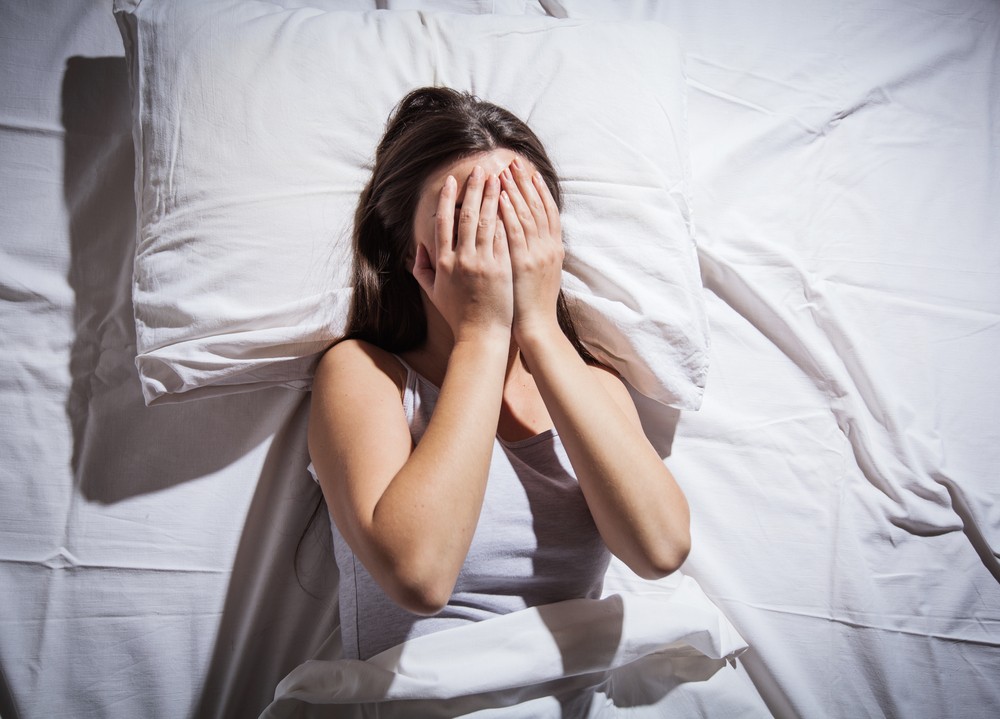As a BetterHelp affiliate, we receive compensation from BetterHelp if you purchase products or services through the links provided
Headaches can be a debilitating condition that affects people’s daily lives, causing discomfort and sometimes even unbearable pain. When a headache strikes at bedtime, finding much-needed relief to ensure a good night’s sleep can be particularly challenging. This article will discuss tips and methods for sleeping better with a headache and ways to prevent headaches from disrupting your rest.
It is essential to understand the factors contributing to headaches during sleep and the types of headaches most likely to affect you at night. Strategies such as creating a sleep-friendly environment, implementing relaxation techniques, and utilizing medication or natural remedies can greatly improve your chances of overcoming sleep disturbances caused by headaches.
Key Takeaways
- Understand factors contributing to headaches during sleep and explore effective strategies for relief.
- Implement sleep-friendly environments, relaxation techniques, and treatments to improve sleep quality.
- Consult a healthcare professional if sleep-related headaches persist or worsen.

Causes of Headaches While Sleeping
Headaches can disrupt sleep quality and negatively affect one’s overall well-being. Identifying the type and cause of a headache can help determine the best treatment options. This section discusses the four primary types of headaches that can occur during sleep.
Tension Headaches
Tension headaches are the most common headache and can easily disturb sleep. They result from muscle tightness in the head, neck, or shoulders, often due to prolonged muscle strain or poor posture. When individuals experience this headache type, they often describe the pain as a dull and constant ache, mimicking a tight band around the head. Stress, lack of sleep, or eye strain can also contribute to tension headaches.
Migraine Headaches
Migraine headaches are a more severe type of headache that can greatly impact sleep quality. They are typically characterized by a pulsating or throbbing pain on one side of the head. Common triggers for migraines include hormonal changes, certain foods, stress, and changes in sleep patterns. Migraine sufferers often experience additional symptoms like nausea, sensitivity to light and sound. In some cases, sleep can help alleviate the symptoms of a migraine.
Cluster Headaches
Cluster headaches are relatively rare but extremely painful and can occur during sleep. Typically felt on one side of the head, these headaches manifest suddenly and are characterized by severe, burning, or piercing pain. Cluster headaches often occur in cycles, with periods of intense pain followed by headache-free intervals. When they strike during sleep, they can cause sleep disruptions, leading to sleep disorders such as insomnia. Triggers for cluster headaches can include alcohol consumption, smoking, and changes in sleep patterns.
Hypnic Headaches
Hypnic headaches are a rare headache disorder that specifically occurs during sleep. These headaches typically awaken the sufferer during the nighttime and are characterized by mild to moderate throbbing pain lasting from 15 minutes to a few hours. Unlike other headache types, hypnic headaches do not have a known list of triggers. However, maintaining good sleep hygiene and adhering to a consistent sleep schedule can help manage this headache type.
How to Sleep with a Headache
Sleep Positioning
Choosing the right sleep position is essential for individuals experiencing headaches. An optimal sleep posture maintains the alignment of the head, neck, and spine, reducing tension and providing relief. One recommended position for headache sufferers is lying on your back with a supportive pillow. Alternatively, adopting the fetal position with a pillow between the knees can help maintain spinal alignment and decrease pressure on the head. A comfortable and supportive mattress is crucial in preventing sleep problems associated with headaches.
Breathing Techniques
Incorporating deep breathing exercises into one’s bedtime routine can help alleviate headache pain and promote relaxation. Some helpful techniques include:
- Diaphragmatic breathing: Breath deeply through the nose, allowing the belly to expand, and then exhale slowly through pursed lips. Repeat for several minutes.
- Box breathing: Inhale for four counts, hold the breath for four counts, exhale for four counts, and pause for four counts before repeating.
These exercises can reduce stress, balance the nervous system, and improve overall health, making sleeping easier with a headache.
Relaxation Techniques
Implementing relaxation techniques can help headache sufferers find relief and improve their sleep quality. Here are some methods to consider:
- Progressive muscle relaxation: Tense and relax individual muscle groups throughout the body to promote overall relaxation.
- Mindfulness meditation: Focus on the present moment, accepting thoughts and feelings without judgment. This can help reduce stress and tension that could exacerbate headaches.
- Guided imagery: Imagine a peaceful scene, concentrating on the sights, sounds, smells, and textures to foster a sense of calm and tranquility.
Exploring and incorporating various relaxation techniques into your nighttime routine can benefit headache management and overall sleep health.
Preventing Sleep-Related Headaches

Lifestyle and Dietary Changes
Making lifestyle and dietary adjustments can significantly impact the frequency of headaches experienced during sleep. It is essential to limit the consumption of caffeine and alcohol as they can disrupt sleep patterns and contribute to headaches. Maintaining a consistent exercise routine is recommended, but avoid strenuous workouts close to bedtime as they may interfere with proper relaxation. Drinking sufficient water throughout the day is crucial to prevent dehydration, which can trigger headaches.
A consistent sleep schedule is necessary for good sleep quality. Aim for 7-9 hours of sleep each night, depending on age and individual needs. Avoid long naps during the day, as they can disrupt nighttime sleep.
Effective stress management is crucial in reducing headache frequency. Consider incorporating relaxation techniques such as deep breathing, meditation, or gentle yoga into your daily routine. These practices help to release tension, decrease anxiety, and promote overall well-being.
Sleep Environment Optimization
An optimized sleep environment is essential for preventing headaches related to sleep deprivation. Start by selecting an appropriate pillow that provides adequate support and promotes correct neck and spinal alignment. This reduces the risk of tension headaches caused by poor posture.
Make sure your bedroom is a relaxing, comfortable space free of distractions. Keep temperatures cool and maintain adequate air circulation within the room. Doctors at the Mayo Clinic recommend using blackout curtains or an eye mask to block out light, which can interfere with restful sleep.
Address potential sources of nighttime teeth grinding (bruxism) or snoring with the help of a healthcare professional. Both conditions can lead to sleep disruptions and headaches.
Finally, establish a bedtime routine that allows you to unwind and prepare your body for rest. This might include reading, listening to calming music, or practicing gentle stretching. Promoting relaxation and improving sleep quality can reduce the likelihood of experiencing sleep-related headaches.

Treatment Options for Headaches
Headaches can interfere with sleep, leading to insomnia and other sleep disorders. Addressing the headache and its underlying causes is essential to ensure a good night’s rest. There are various treatment options available that can help alleviate headaches and improve sleep quality.
Over-the-Counter Medications
Over-the-counter (OTC) medications are often the first line of treatment for many headaches. Aspirin, paracetamol, and non-steroidal anti-inflammatory drugs (NSAIDs) such as ibuprofen can often relieve mild to moderate headaches. However, OTC medications should be used cautiously, as overuse can sometimes lead to rebound headaches. Additionally, people suffering from chronic or episodic migraines may require other treatment options.
Prescription Medications
In cases where over-the-counter medications are insufficient, a doctor may prescribe stronger medications to address headaches. Prescription medications, such as triptans, can target specific migraine symptoms and provide relief. These medications should be taken as directed by the doctor and can help improve sleep quality by addressing the headache effectively.
Alternative Therapies
Apart from medications, there are alternative therapies available that can help with headaches and improve sleep quality. Some strategies include:
- Heating pad: Applying a heating pad to the back of the neck or other areas of discomfort can relieve tension headaches, assisting in relaxation and promoting sleep.
- Blue light reduction: Excessive exposure to blue light from electronic devices can trigger headaches and disrupt sleep patterns. Reducing screen time and using blue-light-filtering glasses can help to mitigate these effects.
- Avoiding triggers: Certain substances, such as nicotine, caffeine, and alcohol, may trigger headaches in some individuals. Identifying and avoiding these triggers can help reduce headache occurrences and improve sleep quality.
Considering the various treatment options available, it is crucial to consult a healthcare professional to determine the most appropriate course of action based on individual circumstances. By addressing the headache and its underlying causes, people can significantly improve their sleep quality and overall well-being.

When to Consult a Doctor
Experiencing a headache during bedtime can disrupt one’s sleep and overall health. While managing health with simple self-care measures may help relieve mild headache symptoms, it’s important to consult a doctor when certain situations arise.
If a person suffers from recurring headaches that affect their daily activities and website usage information indicates that they’ve been searching for health tips, they should consult a healthcare professional. Prompt medical attention helps provide accurate diagnosis and appropriate treatment options for better long-term outcomes.
Below are some scenarios when one must consult a physician:
- Headaches that increase in severity or frequency
- Sudden onset of intense headaches, especially if they have never experienced them before
- A headache accompanied by changes in vision, speech, or balance
- A headache that seems triggered by exertion, coughing, or sexual activity
- Symptoms such as fever, stiff neck, vomiting, confusion, or seizures
- Headaches that occur after a head injury or fall
Assessing one’s symptoms concerning their current health topics enables better decision-making on when to seek medical assistance. In some cases, headaches might indicate a more serious underlying condition. It’s essential to address these health concerns promptly and consult healthcare professionals for expert advice in managing health effectively.
Frequently Asked Questions
Best sleep position for headache relief?
The most effective sleep position for headache relief is lying on your back with a supportive pillow. This position allows for proper head, neck, and spine alignment, which can reduce tension and alleviate headache symptoms.
Is it safe to sleep with a headache?
In most cases, it is safe to sleep with a headache. Sleep can even help relieve headache symptoms. However, if a headache is accompanied by other severe symptoms such as fever, stiffness in the neck, or dizziness, it is important to consult a medical professional.
How to alleviate headache before sleeping?
Try relaxation techniques like deep breathing exercises, gentle stretching, or meditation to alleviate a headache before sleeping. Also, consider taking a warm shower or bath, applying a warm or cold compress to the forehead, and avoiding screens or bright lights.
Why do headaches persist after waking up?
Headaches that persist after waking up may be due to several factors, including dehydration, muscle tension, poor sleep quality, or an underlying medical condition. It is essential to address these factors to reduce morning headaches.
What are some headache remedies for better sleep?
Headache remedies for better sleep include staying hydrated, maintaining a consistent sleep schedule, creating a relaxing sleep environment, and managing stress. Over-the-counter pain relievers like acetaminophen or ibuprofen may be helpful in some cases. Still, they should be used according to the label directions and not relied upon for long-term use.
Which side to sleep on if experiencing a headache?
If experiencing a headache, it is generally best to sleep on the most comfortable side. However, sleeping on the back is often the most optimal position for headache relief, as it properly aligns the head, neck, and spine.
- 5 Helpful Ideas for Managing Stress During a Plumbing Emergency - April 24, 2025
- Buying a Franchise Without Losing Your Mind - April 24, 2025
- 3 Ways Wearing a Hat Can Help Lower Your Stress Levels - April 19, 2025
This site contains affiliate links to products. We will receive a commission for purchases made through these links.



